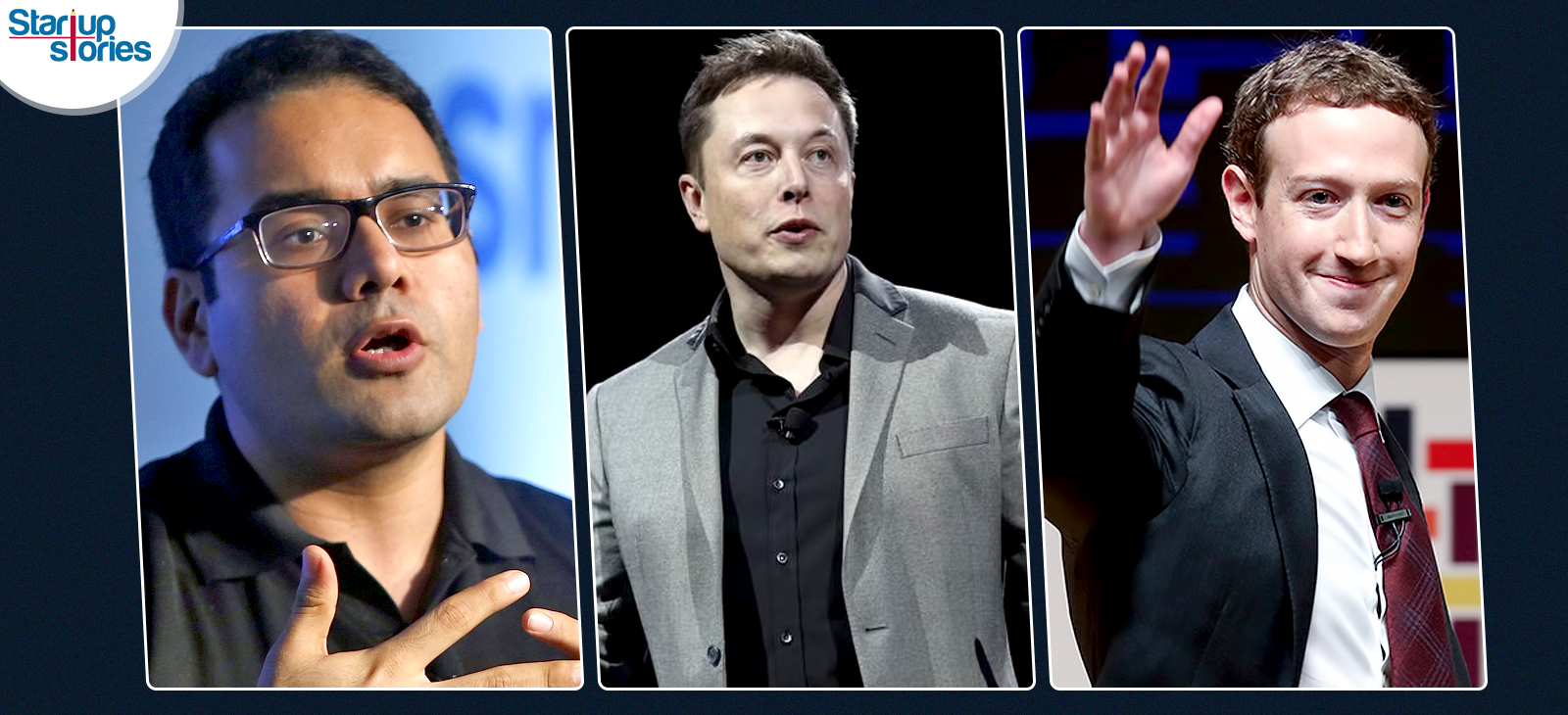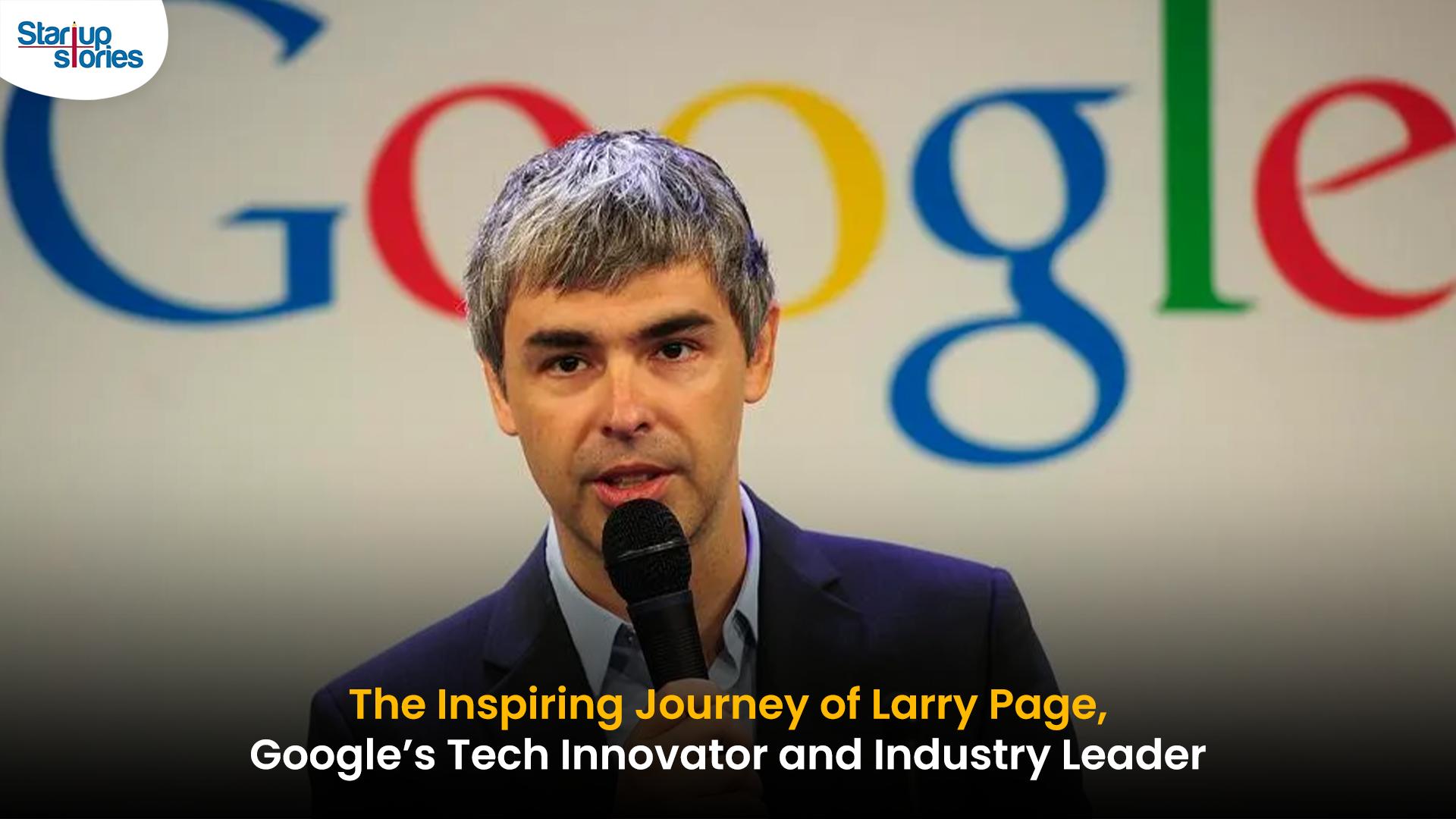Entrepreneur Stories
Entrepreneurship Advice From The Best Business Leaders

The road to success might not be as simple as you think. You go through several hurdles and the path is full of bumpy rides.However, at the end of the day, hard work pays off.
The following words of wisdom from some of the best entrepreneurs are inspiring, motivating and enough to create a zeal in your heart to go on and chase your dreams.
1.Don’t just identify a problem to solve, pick something you truly feel passionate about.
Let us start off with the advice of the very famous Mark Zuckerberg. The man behind the revolutionary social media app, Facebook, says “Don’t set out to build a company, he advised. Rather, “start with the problem that you’re trying to solve in the world.
The best companies that get built are things that are trying to drive some kind of social change, even if it’s just local in one place.”
2. Having a co-founder helps get through the ups and downs of working at a start up.
The Flipkart Co founder Sachin Bansal advised regarding the setting up of a startup.
He said “The biggest advice I have given to entrepreneurs is not to start alone. I always tell them to find a co–founder with whom they have good chemistry and with whom they share similar goals and vision for the venture.”
3. Take Risks even if it risks your life, at the end of the day it will all be worth.
Elon Musk is not your ordinary Billionaire. Unlike most Billionaire’s Musk made billions of dollars multiple times with entirely different businesses. He recommends taking risks when you are still young as obligations only increase over time. With greater risks, such as those needed to carve out a new niche, comes the potential for far greater rewards
4. Be missionaries, not mercenaries.
Jeff Bezos is the founder of the famous E-commerce store Amazon. He is an exponential entrepreneur. He says “I tell people that when we acquire companies, I’m always trying to figure out: Is this person who leads this company a missionary or a mercenary? The missionary is building the product and building the service because they love the customer because they love the product because they love the service. The mercenary is building the product or service so that they can flip the company and make money.
One of the great paradoxes is that the missionaries end up making more money than the mercenaries anyway. So pick something that you are passionate about, that’s my number one piece of advice.”
5.Failures help you build character.
Kunal Bahl, CEO of Snapdeal says failures help you build character. He failed numerous times and that arduous journey of failures takes you to a successful destination. So never be afraid of failures as it only makes you stronger and motivates you to move ahead with courage and confidence.
Henceforth, in order to achieve your goals and dreams, you need to keep in mind a few pieces of advice from the best entrepreneurs.
Videos
T.N. Seshan: The Fearless Reformer Who Redefined Indian Democracy

T.N. Seshan’s name stands tall in India’s history as the man who transformed the nation’s electoral system with extraordinary courage and integrity. Born in 1932 in Kerala, Seshan grew up with values of discipline, education, and service to the nation — virtues that shaped his illustrious journey. From his early brilliance at Madras Christian College to his advanced studies in public administration at Harvard University, Seshan’s path reflected rare determination and intellect. Joining the Indian Administrative Service in 1955, he built a reputation as a no‑nonsense officer committed to efficiency and honesty, serving in key roles such as Secretary of Defense and overseeing vital national programs.
As the Chief Election Commissioner of India in 1990, T.N. Seshan sparked a new era of electoral integrity. In a system once marred by corruption, violence, and malpractice, Seshan brought order, fear, and respect through his groundbreaking reforms. He introduced voter ID cards, imposed strict spending limits on campaigns, and insisted on transparency at every level of the election process. Despite criticism from political circles that labeled him dictatorial, his relentless pursuit of fairness empowered every citizen to vote fearlessly. Under his leadership, the Election Commission became a symbol of strength and integrity in Indian democracy.
Seshan’s passing in November 2019 marked the end of an era, but his message continues to resonate across generations. Leaders from every corner of the country mourned the loss of the man who restored faith in free and fair elections. His enduring legacy reminds us that true leadership lies not in wielding power, but in serving people with honesty, courage, and conviction. T.N. Seshan’s life remains a timeless inspiration a reminder that democracy thrives only when its citizens are vigilant, responsible, and fearless.
Entrepreneur Stories
Indian Man Quits JPMorgan, Takes 70% Pay Cut to Launch $6 Million Startup

Leaving behind a high-paying job at JPMorgan, an Indian entrepreneur embraced a 70% salary cut to pursue true purpose and passion in the startup world. Disenchanted with what he described as a “robotic” corporate routine, he sought meaningful work that made a real impact. This pivotal decision marked the beginning of his new journey, one focused on value creation rather than titles and corporate perks.
Powered by resilience and fresh perspective, the entrepreneur launched his own startup, prioritizing innovation and hands-on solutions. The road was challenging, but his vision resonated with the market: the startup quickly gained traction and raised $6 million—an impressive acknowledgement of its potential in a competitive landscape. Every hard lesson from early setbacks and bootstrapping paid off in real customer growth and investor confidence.
Today, his journey stands as an inspiring example for professionals seeking authentic success outside the corporate grind. By trading comfort for creative freedom, he grew a venture that solves important problems, generates jobs, and builds wealth beyond just salary. For ambitious founders, his story highlights the power of risk-taking, adaptability, and relentless focus on impact in India’s thriving startup ecosystem.
Videos
Larry Page: The Visionary Co-Founder Behind Google’s Global Success

Larry Page is a visionary technology entrepreneur and co-founder of Google, one of the world’s most influential companies. Born in 1973 in Michigan, Page grew up surrounded by computer technology, which inspired his passion for innovation from an early age. He studied computer engineering at the University of Michigan and later pursued his PhD at Stanford University, where he developed the revolutionary PageRank algorithm with Sergey Brin. This technology fundamentally changed the way search engines rank websites, making Google the most accurate and popular search engine globally.
The journey of Larry Page and Google began in 1998 when they officially launched the search engine from a small garage. Leveraging their unique algorithm, Google quickly surpassed competitors due to its ability to deliver highly relevant search results, transforming internet search forever. Under Larry Page’s leadership as CEO, Google expanded beyond search to launch groundbreaking products including YouTube, Gmail, and Google Maps, turning it into a global tech powerhouse that shapes how we access and interact with information online.
Larry Page later became the CEO of Google’s parent company, Alphabet Inc., driving innovation and investment in next-generation technologies such as artificial intelligence, autonomous vehicles, and healthcare solutions. His visionary leadership and commitment to technological advancement have cemented his legacy as one of the most influential figures in the tech industry. Today, Larry Page remains a key influencer in shaping the future of technology and digital innovation worldwide.














Danielemode
May 28, 2025 at 3:06 pm
https://biotpharm.shop/# buy antibiotics for uti
Kuwin
November 7, 2025 at 8:56 am
kuwin sở hữu kho game đa dạng từ slot đến trò chơi bài đổi thưởng, mang đến cho bạn những giây phút giải trí tuyệt vời.
MM88
November 9, 2025 at 9:48 am
Với giao diện mượt mà và ưu đãi hấp dẫn, MM88 là lựa chọn lý tưởng cho các tín đồ giải trí trực tuyến.
站群程序
November 9, 2025 at 12:13 pm
搭载智能站群程序,自动化搭建与管理,为SEO项目提供核心驱动力。站群程序
谷歌外推
November 13, 2025 at 5:57 am
采用高效谷歌外推策略,快速提升网站在搜索引擎中的可见性与权重。谷歌外推
GO88
November 17, 2025 at 5:00 pm
Tham gia cộng đồng game thủ tại Go88 để trải nghiệm các trò chơi bài, poker phổ biến nhất hiện nay.
iwin
November 20, 2025 at 9:34 am
iwin – nền tảng game bài đổi thưởng uy tín, nơi bạn có thể thử vận may và tận hưởng nhiều tựa game hấp
MM88
November 23, 2025 at 6:38 am
Khám phá thế giới giải trí trực tuyến đỉnh cao tại MM88, nơi mang đến những trải nghiệm cá cược thể thao và casino sống động.
J88
November 23, 2025 at 7:17 pm
Đến với J88, bạn sẽ được trải nghiệm dịch vụ cá cược chuyên nghiệp cùng hàng ngàn sự kiện khuyến mãi độc quyền.
AtomCasino
December 13, 2025 at 12:45 pm
https://t.me/s/atom_official_casino
kazino_s_minimalnym_depozitom
December 20, 2025 at 8:25 am
https://t.me/s/Kazino_s_minimalnym_depozitom
starz
December 25, 2025 at 9:44 am
https://t.me/s/Officials_888STARZ